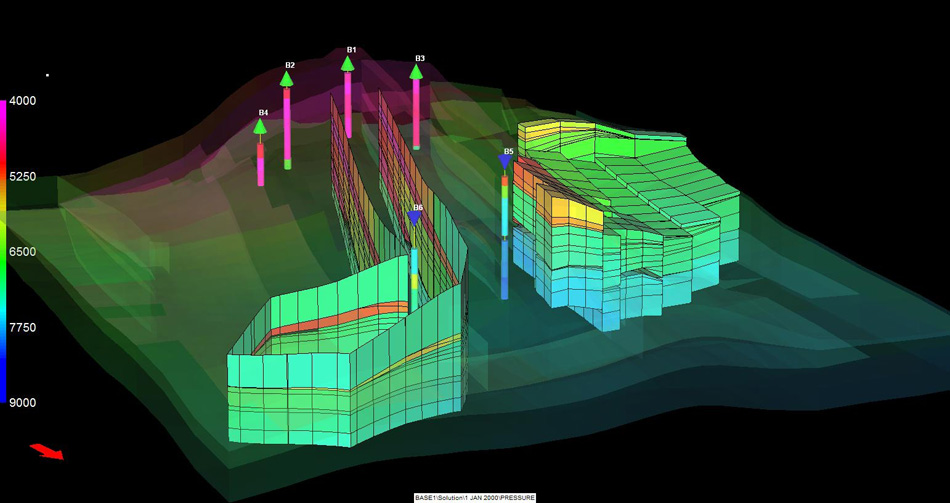Course Details
Your Growth, Our Mission

Course Description
The Training Course Will Highlight ?
The course starts with an overview of the fundamental principles of reservoir simulation and explains various types of simulators including black-oil, compositional, and dual porosity. The role of simulation in managing a reservoir is also highlighted.
Training Objective
By the end of this course delegates will be able to:
-
- Have an understanding of the elements of a reservoir simulation model
- Understand how models are built
- Gain an appreciation for the fundamental concepts of reservoir simulation
- Gain a view on the tools used in the industry
Target Audience
Geologists, Petrophysicists, reservoir engineers, production engineers who are interested in obtaining an overview of simulation technology and how simulation fits into the reservoir development and optimization process
Training Methods
This interactive Training will be highly interactive, with opportunities to advance your opinions and ideas and will include;
- Lectures
- Workshop & Work Presentation
- Case Studies and Practical Exercise
- Videos and General Discussions
Daily Agenda
Course Outline:
-
- Introduction
- Simulator Types
- Basic Principles
- Review of Mathematics
- Formulation of Equations
- Mass Balance Equation
- Darcy’s Law
- Simulator Flow Equations
- Role of Simulation
- Modeling Fundamentals
- Rock Properties
- Rock-Fluid Properties
- PVT
- The Material Balance Equation and its Deficiencies
- Types of Reservoir Simulators
- Data Requirements
- Simulation Steps
- Selection of Model and Data Preparation
- Flow Equations
- Formulation and Derivation of Reservoir Simulation Equations
- Setting Up the Finite-Difference Model
- Solution Methods
- Horizontal Wells (SPE Comparative Study)
- Water Flooding Scenario
- Gas Injection Scenario (SPE Comparative Study)
- Miscible Displacement by CO2 injection (SPE Comparative Study)
- Transmissibilities and Treatment of Faults
- History Matching
- Equations of State and Compositional Modeling
- Well Models
- Discretization
- Formulation Options
- Water Influx
- Water drive classification
- Aquifer classification
- Water-drive diagnosis
- Key aquifer properties
- Black-oil reservoirs
- Material balance and recovery strategies
- Importance of compaction in oil reservoirs
- Estimating oil well rates
- Solution-gas-drive reservoir performance
- Gas-cap-drive reservoir performance
- Water-drive reservoir performance
- Analyzing performance using material balance
- Volatile-oil and gas-condensate reservoirs
- Estimating well rates
- Volatile-oil reservoir performance
- Gas-condensate reservoir performance
- Gas cycling
- Dewpoint cycling
- Analyzing performance using material balance
Accreditation
BTS attendance certificate will be issued to all attendees completing minimum of 80% of the total course duration.
Quick Enquiry
Request Info
Related Courses
Your Growth, Our Mission

